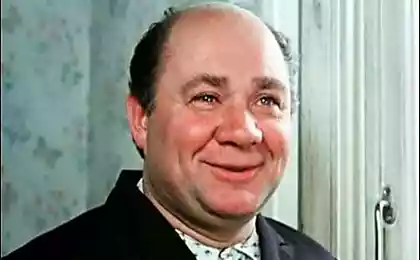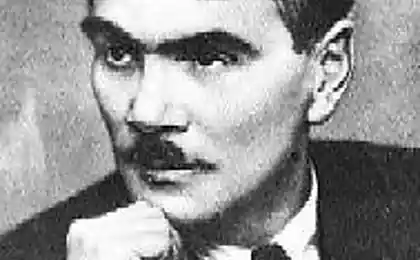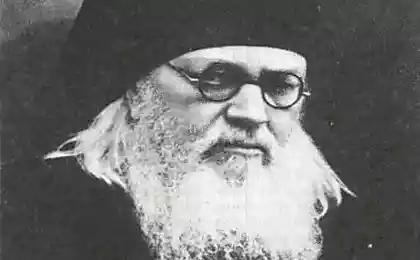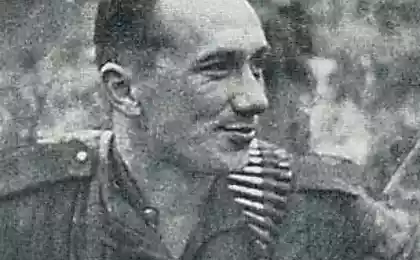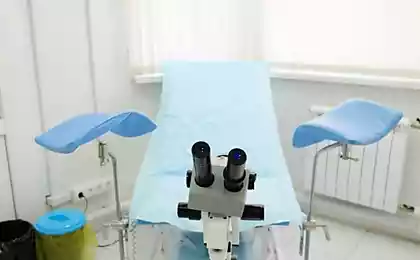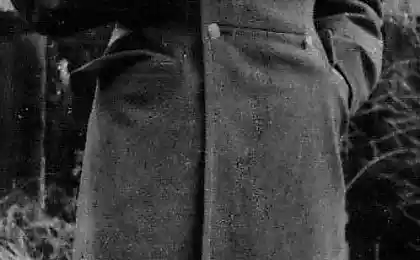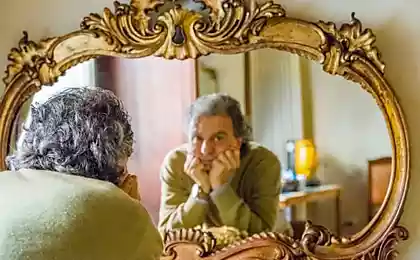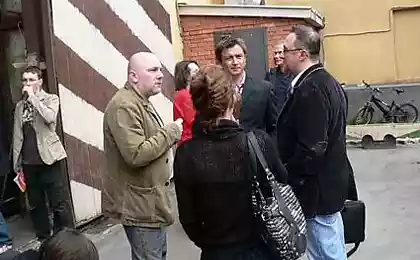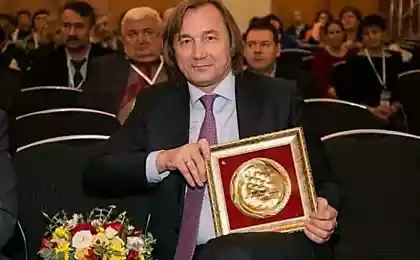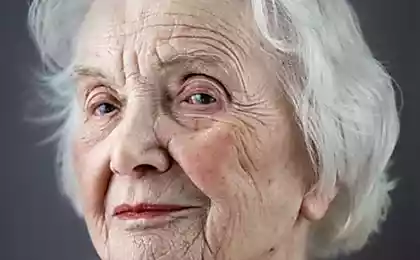651
Eugene Botkin: "I gave the king my word to stay with him as long as he lives!"
Eugene Botkin was born on 27 may 1865 in Tsarskoye Selo in the family of the outstanding Russian scientist and doctor, founder of the experimental direction in medicine of Sergei Petrovich Botkin. His father was a court physician of the emperors Alexander II and Alexander III.
In his childhood he received an excellent education and was accepted into the fifth class of the St. Petersburg classical gymnasium. After graduating from high school entered the physics and mathematics faculty of St. Petersburg University, but after the first year decided to become a doctor and entered the preparatory course of the Military medical Academy.
Medical way Eugene Botkin began in January 1890 with a position of doctor-assistant of the Mariinsky hospital for the poor. A year later he went abroad with a scientific purpose, studied with the leading European scholars got acquainted with the device of the Berlin hospitals.
In may, 1892, Eugene S. became a doctor of the Court Chapel, and in January of 1894 returned to the Mariinsky hospital. However, he continued his scientific work: he was involved in immunology, studied the essence of the process of leucocytosis, and the protective properties of the formed elements of blood.
In 1893, he brilliantly defended his thesis. Official opponent at the defense was the first physiologist and Nobel laureate Ivan Pavlov.
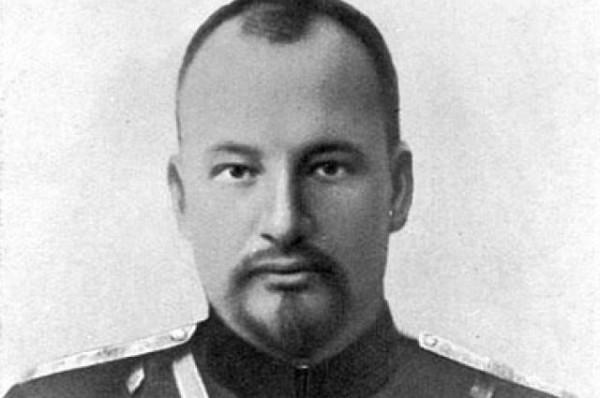
With the outbreak of the Russo-Japanese war (1904), Eugene Botkin went into the army as a volunteer and became head of the medical part of the Russian society of the red cross in the Manchurian army. According to eyewitnesses, despite the administrative position, he spent a lot of time on the front line. For the difference in work was awarded many medals, including the combat officer.
In the fall of 1905 E. S. returned to Petersburg and began teaching at the Academy. In 1907 he was appointed chief physician of the communities of St. George in the capital.
In 1907, after the death of Gustav Hirsch the Royal family is left without life-medic. The candidacy of a new life-medic was called by the Empress herself, who, when asked who she would like to see on this post, said: "Botkin". When she said that now in St. Petersburg there are two equally Botkin said, "that was in the war!".
Botkin was older than his August patient of Nicholas II — three years. The responsibility of the life-medic consisted of treatment of all members of the Royal family, which he carefully performed. Had to examine and treat the Emperor, who had good health, Grand duchesses who had different childhood infections. But the main object of the efforts of Eugene S. was Tsarevich Alexei with a history of hemophilia.
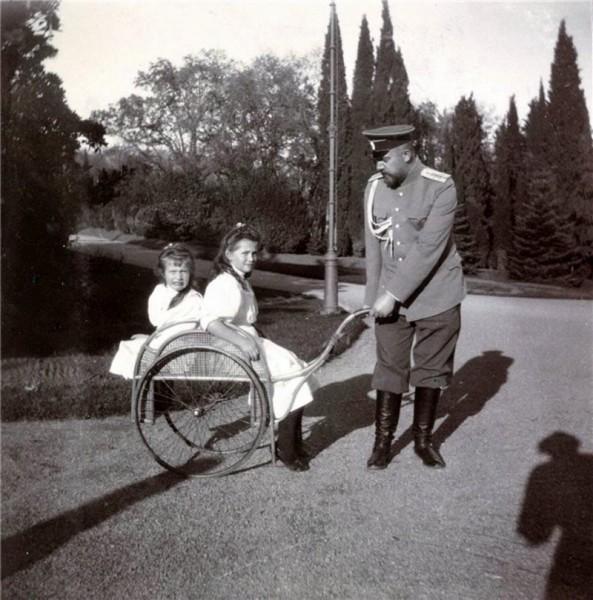
Grand duchesses Maria and Anastasia and Evgeny Sergeevich Botkin
After the February revolution of 1917, the Imperial family was imprisoned in Alexander Palace in Tsarskoye Selo. All the servants and helpers suggested by the desire to leave the prisoners. But Dr. Botkin was left with patients.
He did not want to leave them and when the Royal family decided to send to Tobolsk. There he opened a free medical practice for locals.
In April 1918, together with the Royal couple and their daughter, Maria, Dr. Botkin moved from Tobolsk to Ekaterinburg. At that moment he was still able to leave the Royal family, but the medical left.
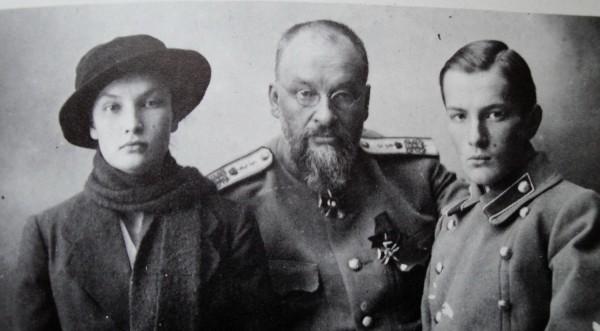
Johann Meyer, Austrian soldiers in Russian captivity during the First world war and sided with the Bolsheviks in Yekaterinburg, has written a memoir, "How died Tsar's family." In the book he reports on the Bolsheviks made the offer to Dr. Botkin to leave the Royal family and to choose their place of work, for example, somewhere in a Moscow clinic. Thus, one of the inmates of the house of special purpose knew about the impending execution. He knew, having a choice, chose to rescue the loyalty oath, once given to the king.
Here is how Meyer describes it: "See, I gave the king my word to stay with him as long as he lives. For a man in my position cannot not hold back a word. I also can't leave the heir of one. How can I combine it with his conscience? You all need to understand this."
Dr. Botkin was killed along with the entire Imperial family in Yekaterinburg, in the Ipatiev house on the night of 16 to 17 July 1918.
In 1981, together with other shot in the Ipatiev house, he was canonized by the Russian Orthodox Church Abroad.
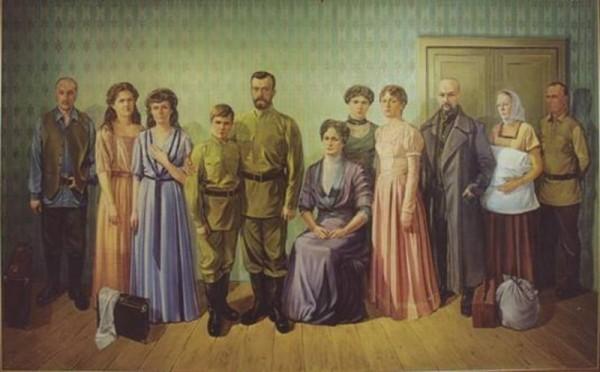
LIFE
MARTYR EUGENE DOCTOR (BOTKIN)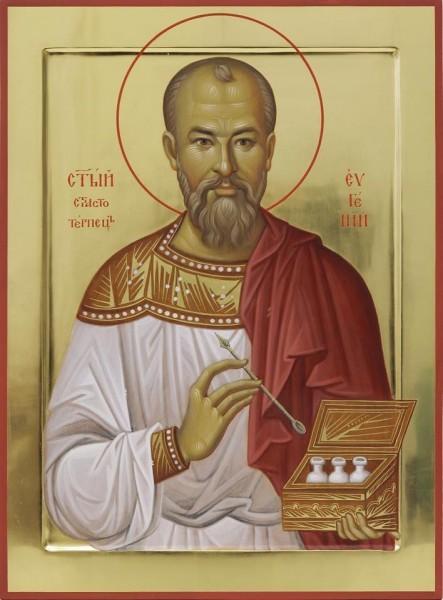
Yevgeny Sergeyevich Botkin was descended from a merchant dynasty Botkin, whose members were distinguished by deep Christian faith and charity, helped the Orthodox Church not only their funds, but also for his works. Due to wisely organized system of education in the family and wise guardianship of parents, in the heart of Eugene since childhood was laid many virtues, including generosity, modesty and a rejection of violence.
His brother Peter S. recalled: "He was infinitely kind. One could say that he came into the world for people and to sacrifice themselves".
Eugene received a thorough education at home, which enabled him in 1878 to enter the fifth grade of the 2nd Saint-Petersburg classical gymnasium. In 1882, Eugene graduated from high school and became a student of physics and mathematics faculty of St. Petersburg University. However, the following year, having passed the first year exams at the University, he entered the Junior Department opened a preparatory course at the Imperial Military medical Academy. His choice of the medical profession from the very beginning was a conscious and focused. Peter Botkin wrote about Eugene: "a Profession he chose medicine. This corresponded to his vocation: to help, to support in difficult times, to ease pain, to heal without end." In 1889 Eugene successfully graduated from the Academy, received the title of doctor with honors, in January, 1890, he began his career at the Mariinsky hospital for the poor.
In 25 years Yevgeny Sergeyevich Botkin was married with the daughter of a hereditary nobleman V. Olga Manuilova. In the Botkin family grew by four children: Dmitry (1894-1914), George (1895-1941), Tatiana (1898-1986), Hleb (1900-1969).
While working in the hospital E. S. Botkin was a scientist, he was interested in questions of immunology, the essence of the process of leucocytosis. In 1893 E. S. Botkin brilliantly defended his thesis for the degree of doctor of medicine. After 2 years, Evgeny was sent abroad where she interned in medical institutions of Heidelberg and Berlin. In 1897, E. S. Botkin was awarded the title of Privat-docent at the internal medicine clinic. In his first lecture he told the students about the most important activities of the doctor: "let's Go with love to the sick person, to learn together how to be useful to him". The Ministry of medic Eugene S. considered truly Christian work, he had a religious view of disease, saw their relationship with the mental state of the person. In one of his letters to son George, he expressed his attitude towards the profession of doctor as a means of knowing God's wisdom: "but the Main delight, who is experienced in this business... is that we have deeper and deeper into the details and mystery of God's creations, and it is impossible not to enjoy their appropriateness and harmony and His highest wisdom."
In 1897 E. S. Botkin began his medical practice in the community of the sisters of charity of the Russian red cross Society. November 19, 1897, he became a doctor at the Holy Trinity community of the sisters of charity, and from January 1, 1899, became also chief physician of the St. Petersburg community of sisters of mercy in honor of St. George. The main patients of the community of St. George was the poorest segments of society, but the doctors and staff were chosen it with special care. Some upper-class woman worked there and simple nurses on a General basis and considered honorable for this occupation. Among the employees prevailed such enthusiasm, such a willingness to help the suffering people that the georgievtsy sometimes compared with the early Christian community. The fact that Yevgeny Sergeyevich took to work in this "exemplary institution", testified not only about his growing authority as a doctor, but his Christian virtues and the good life. The position of the chief physician of the community could be entrusted only to a moral and believer.
In 1904 began the Russian-Japanese war, and Yevgeny Sergeyevich, leaving a wife and four small children (the eldest was at that time ten years younger or four years), a volunteer went to the far East. February 2, 1904 the resolution of the Main Directorate of the Russian society of the red cross, he was appointed assistant to the chief Executive officer under existing armies at the medical unit. Occupying this fairly high administrative position, Dr. Botkin was often at the forefront. During the war, Eugene S. not only showed himself an excellent physician, but also showed personal bravery and courage. He wrote from the front, many letters of which formed a book – "Light and shadow of the Russo-Japanese war of 1904-1905". This book was soon published, and many who read it, opened up a new side of the Petersburg doctor: Christian, loving, infinitely compassionate heart and unwavering faith in God. Empress Alexandra Feodorovna, read the book, Botkin, wished Eugene S. became the personal doctor of the Royal family. On Easter Sunday, April 13, 1908, Emperor Nicholas II signed a decree on appointment of Dr. Botkin's court physician of the Imperial court.
Now, after the new appointment, Eugene S. was supposed to reside in the Emperor and members of his family, his service at the Royal court proceeded without days off and holidays. High position and closeness to the Royal family not changed the nature of E. S. Botkin. He was still kind and attentive to others what was before.
When the First world war, Eugene S. appealed to the Emperor to send him to the front for the reorganization of the sanitary service. However, the Emperor instructed him to stay at the Empress and the children in Tsarskoe Selo, where their efforts began to open hospitals. At home in Tsarskoye Selo Yevgeny Sergeyevich also made a hospital for the lightly wounded, who visited the Empress with her daughters.
In February 1917 in Russia there was a revolution. On March 2, the Tsar signed the Manifesto of abdication from the throne. The Royal family was arrested and imprisoned in the Alexander Palace. Eugene S. did not leave of his Royal patients: he voluntarily decided to stay with them, despite the fact that his position was abolished and he ceased to pay the salary. At this time, Botkin was for Royal prisoners more than a friend: he took the responsibility to be a mediator between the Imperial family and the commissioners, calling for all their needs.
When the Royal family had decided to move to Tobolsk, Dr. Botkin was among the few confidants who willingly followed the Emperor into exile. Letter to Dr. Botkin from Tobolsk astonishingly true Christian, mood: no word of complaint, condemnation, dissatisfaction, or resentment, but complacency and even joy. The source of this complacency was the solid faith in the merciful Providence of God: "only Supports the prayer and hot boundless confidence in the mercy of God, always our Heavenly Father pours out on us". During this time he continued to perform his duties: he treated not only members of the Royal family but also ordinary citizens. A scientist, for many years to communicate with the scientific, medical, administrative elite of Russia, he humbly served as the Zemstvo, or the town doctor, ordinary peasants, soldiers, workers.
In April, 1918, Dr. Botkin volunteered to escort the Royal couple to Ekaterinburg, leaving Tobolsk their own children, which and fervently loved. In Yekaterinburg, the Bolsheviks again proposed the servants to leave arrested, but all refused. Security officer I. rodzinsky reported: "at one time after the transfer to Ekaterinburg was thought to separate from them all, in particular even daughters wanted to go. But all refused. Botkin suggested. He said he wants to share the fate of the family. And refused".
In the night from 16 to 17 July 1918 the Royal family, their servants, including Dr. Botkin, were shot in the basement of the Ipatiev house. A few years before his death, Eugene S. received the title of hereditary nobleman. For his coat of arms he chose the motto: "Faith, loyalty, work." These words would have concentrated all the life the ideals and aspirations of Dr. Botkin. Deep inner piety, the most important thing – the sacrificial service to the neighbor, unwavering loyalty to the Royal family and loyalty to God and His commandments in all circumstances, loyalty to death. Such loyalty to the Lord accepts as pure victim and gives her a heavenly reward: Be faithful until death, and I will give thee a crown of life (Rev. 2, 10). Court physician Eugene Botkin is glorified in the Council of bishops in 2016. published
P. S. And remember, just changing your mind — together we change the world! ©
Source: www.pravmir.ru/ya-dal-tsaryu-chestnoe-slovo-ostavatsya-pri-nem-do-teh-por-poka-on-zhiv/
In his childhood he received an excellent education and was accepted into the fifth class of the St. Petersburg classical gymnasium. After graduating from high school entered the physics and mathematics faculty of St. Petersburg University, but after the first year decided to become a doctor and entered the preparatory course of the Military medical Academy.
Medical way Eugene Botkin began in January 1890 with a position of doctor-assistant of the Mariinsky hospital for the poor. A year later he went abroad with a scientific purpose, studied with the leading European scholars got acquainted with the device of the Berlin hospitals.
In may, 1892, Eugene S. became a doctor of the Court Chapel, and in January of 1894 returned to the Mariinsky hospital. However, he continued his scientific work: he was involved in immunology, studied the essence of the process of leucocytosis, and the protective properties of the formed elements of blood.
In 1893, he brilliantly defended his thesis. Official opponent at the defense was the first physiologist and Nobel laureate Ivan Pavlov.

With the outbreak of the Russo-Japanese war (1904), Eugene Botkin went into the army as a volunteer and became head of the medical part of the Russian society of the red cross in the Manchurian army. According to eyewitnesses, despite the administrative position, he spent a lot of time on the front line. For the difference in work was awarded many medals, including the combat officer.
In the fall of 1905 E. S. returned to Petersburg and began teaching at the Academy. In 1907 he was appointed chief physician of the communities of St. George in the capital.
In 1907, after the death of Gustav Hirsch the Royal family is left without life-medic. The candidacy of a new life-medic was called by the Empress herself, who, when asked who she would like to see on this post, said: "Botkin". When she said that now in St. Petersburg there are two equally Botkin said, "that was in the war!".
Botkin was older than his August patient of Nicholas II — three years. The responsibility of the life-medic consisted of treatment of all members of the Royal family, which he carefully performed. Had to examine and treat the Emperor, who had good health, Grand duchesses who had different childhood infections. But the main object of the efforts of Eugene S. was Tsarevich Alexei with a history of hemophilia.

Grand duchesses Maria and Anastasia and Evgeny Sergeevich Botkin
After the February revolution of 1917, the Imperial family was imprisoned in Alexander Palace in Tsarskoye Selo. All the servants and helpers suggested by the desire to leave the prisoners. But Dr. Botkin was left with patients.
He did not want to leave them and when the Royal family decided to send to Tobolsk. There he opened a free medical practice for locals.
In April 1918, together with the Royal couple and their daughter, Maria, Dr. Botkin moved from Tobolsk to Ekaterinburg. At that moment he was still able to leave the Royal family, but the medical left.

Johann Meyer, Austrian soldiers in Russian captivity during the First world war and sided with the Bolsheviks in Yekaterinburg, has written a memoir, "How died Tsar's family." In the book he reports on the Bolsheviks made the offer to Dr. Botkin to leave the Royal family and to choose their place of work, for example, somewhere in a Moscow clinic. Thus, one of the inmates of the house of special purpose knew about the impending execution. He knew, having a choice, chose to rescue the loyalty oath, once given to the king.
Here is how Meyer describes it: "See, I gave the king my word to stay with him as long as he lives. For a man in my position cannot not hold back a word. I also can't leave the heir of one. How can I combine it with his conscience? You all need to understand this."
Dr. Botkin was killed along with the entire Imperial family in Yekaterinburg, in the Ipatiev house on the night of 16 to 17 July 1918.
In 1981, together with other shot in the Ipatiev house, he was canonized by the Russian Orthodox Church Abroad.

LIFE
MARTYR EUGENE DOCTOR (BOTKIN)

Yevgeny Sergeyevich Botkin was descended from a merchant dynasty Botkin, whose members were distinguished by deep Christian faith and charity, helped the Orthodox Church not only their funds, but also for his works. Due to wisely organized system of education in the family and wise guardianship of parents, in the heart of Eugene since childhood was laid many virtues, including generosity, modesty and a rejection of violence.
His brother Peter S. recalled: "He was infinitely kind. One could say that he came into the world for people and to sacrifice themselves".
Eugene received a thorough education at home, which enabled him in 1878 to enter the fifth grade of the 2nd Saint-Petersburg classical gymnasium. In 1882, Eugene graduated from high school and became a student of physics and mathematics faculty of St. Petersburg University. However, the following year, having passed the first year exams at the University, he entered the Junior Department opened a preparatory course at the Imperial Military medical Academy. His choice of the medical profession from the very beginning was a conscious and focused. Peter Botkin wrote about Eugene: "a Profession he chose medicine. This corresponded to his vocation: to help, to support in difficult times, to ease pain, to heal without end." In 1889 Eugene successfully graduated from the Academy, received the title of doctor with honors, in January, 1890, he began his career at the Mariinsky hospital for the poor.
In 25 years Yevgeny Sergeyevich Botkin was married with the daughter of a hereditary nobleman V. Olga Manuilova. In the Botkin family grew by four children: Dmitry (1894-1914), George (1895-1941), Tatiana (1898-1986), Hleb (1900-1969).
While working in the hospital E. S. Botkin was a scientist, he was interested in questions of immunology, the essence of the process of leucocytosis. In 1893 E. S. Botkin brilliantly defended his thesis for the degree of doctor of medicine. After 2 years, Evgeny was sent abroad where she interned in medical institutions of Heidelberg and Berlin. In 1897, E. S. Botkin was awarded the title of Privat-docent at the internal medicine clinic. In his first lecture he told the students about the most important activities of the doctor: "let's Go with love to the sick person, to learn together how to be useful to him". The Ministry of medic Eugene S. considered truly Christian work, he had a religious view of disease, saw their relationship with the mental state of the person. In one of his letters to son George, he expressed his attitude towards the profession of doctor as a means of knowing God's wisdom: "but the Main delight, who is experienced in this business... is that we have deeper and deeper into the details and mystery of God's creations, and it is impossible not to enjoy their appropriateness and harmony and His highest wisdom."
In 1897 E. S. Botkin began his medical practice in the community of the sisters of charity of the Russian red cross Society. November 19, 1897, he became a doctor at the Holy Trinity community of the sisters of charity, and from January 1, 1899, became also chief physician of the St. Petersburg community of sisters of mercy in honor of St. George. The main patients of the community of St. George was the poorest segments of society, but the doctors and staff were chosen it with special care. Some upper-class woman worked there and simple nurses on a General basis and considered honorable for this occupation. Among the employees prevailed such enthusiasm, such a willingness to help the suffering people that the georgievtsy sometimes compared with the early Christian community. The fact that Yevgeny Sergeyevich took to work in this "exemplary institution", testified not only about his growing authority as a doctor, but his Christian virtues and the good life. The position of the chief physician of the community could be entrusted only to a moral and believer.
In 1904 began the Russian-Japanese war, and Yevgeny Sergeyevich, leaving a wife and four small children (the eldest was at that time ten years younger or four years), a volunteer went to the far East. February 2, 1904 the resolution of the Main Directorate of the Russian society of the red cross, he was appointed assistant to the chief Executive officer under existing armies at the medical unit. Occupying this fairly high administrative position, Dr. Botkin was often at the forefront. During the war, Eugene S. not only showed himself an excellent physician, but also showed personal bravery and courage. He wrote from the front, many letters of which formed a book – "Light and shadow of the Russo-Japanese war of 1904-1905". This book was soon published, and many who read it, opened up a new side of the Petersburg doctor: Christian, loving, infinitely compassionate heart and unwavering faith in God. Empress Alexandra Feodorovna, read the book, Botkin, wished Eugene S. became the personal doctor of the Royal family. On Easter Sunday, April 13, 1908, Emperor Nicholas II signed a decree on appointment of Dr. Botkin's court physician of the Imperial court.
Now, after the new appointment, Eugene S. was supposed to reside in the Emperor and members of his family, his service at the Royal court proceeded without days off and holidays. High position and closeness to the Royal family not changed the nature of E. S. Botkin. He was still kind and attentive to others what was before.
When the First world war, Eugene S. appealed to the Emperor to send him to the front for the reorganization of the sanitary service. However, the Emperor instructed him to stay at the Empress and the children in Tsarskoe Selo, where their efforts began to open hospitals. At home in Tsarskoye Selo Yevgeny Sergeyevich also made a hospital for the lightly wounded, who visited the Empress with her daughters.
In February 1917 in Russia there was a revolution. On March 2, the Tsar signed the Manifesto of abdication from the throne. The Royal family was arrested and imprisoned in the Alexander Palace. Eugene S. did not leave of his Royal patients: he voluntarily decided to stay with them, despite the fact that his position was abolished and he ceased to pay the salary. At this time, Botkin was for Royal prisoners more than a friend: he took the responsibility to be a mediator between the Imperial family and the commissioners, calling for all their needs.
When the Royal family had decided to move to Tobolsk, Dr. Botkin was among the few confidants who willingly followed the Emperor into exile. Letter to Dr. Botkin from Tobolsk astonishingly true Christian, mood: no word of complaint, condemnation, dissatisfaction, or resentment, but complacency and even joy. The source of this complacency was the solid faith in the merciful Providence of God: "only Supports the prayer and hot boundless confidence in the mercy of God, always our Heavenly Father pours out on us". During this time he continued to perform his duties: he treated not only members of the Royal family but also ordinary citizens. A scientist, for many years to communicate with the scientific, medical, administrative elite of Russia, he humbly served as the Zemstvo, or the town doctor, ordinary peasants, soldiers, workers.
In April, 1918, Dr. Botkin volunteered to escort the Royal couple to Ekaterinburg, leaving Tobolsk their own children, which and fervently loved. In Yekaterinburg, the Bolsheviks again proposed the servants to leave arrested, but all refused. Security officer I. rodzinsky reported: "at one time after the transfer to Ekaterinburg was thought to separate from them all, in particular even daughters wanted to go. But all refused. Botkin suggested. He said he wants to share the fate of the family. And refused".
In the night from 16 to 17 July 1918 the Royal family, their servants, including Dr. Botkin, were shot in the basement of the Ipatiev house. A few years before his death, Eugene S. received the title of hereditary nobleman. For his coat of arms he chose the motto: "Faith, loyalty, work." These words would have concentrated all the life the ideals and aspirations of Dr. Botkin. Deep inner piety, the most important thing – the sacrificial service to the neighbor, unwavering loyalty to the Royal family and loyalty to God and His commandments in all circumstances, loyalty to death. Such loyalty to the Lord accepts as pure victim and gives her a heavenly reward: Be faithful until death, and I will give thee a crown of life (Rev. 2, 10). Court physician Eugene Botkin is glorified in the Council of bishops in 2016. published
P. S. And remember, just changing your mind — together we change the world! ©
Source: www.pravmir.ru/ya-dal-tsaryu-chestnoe-slovo-ostavatsya-pri-nem-do-teh-por-poka-on-zhiv/

